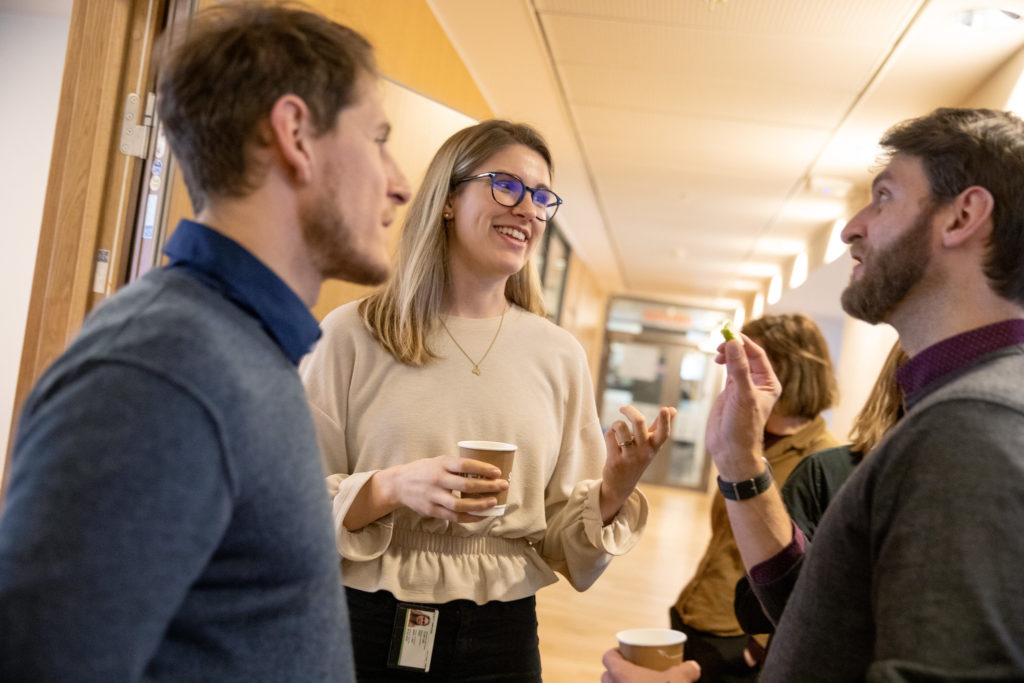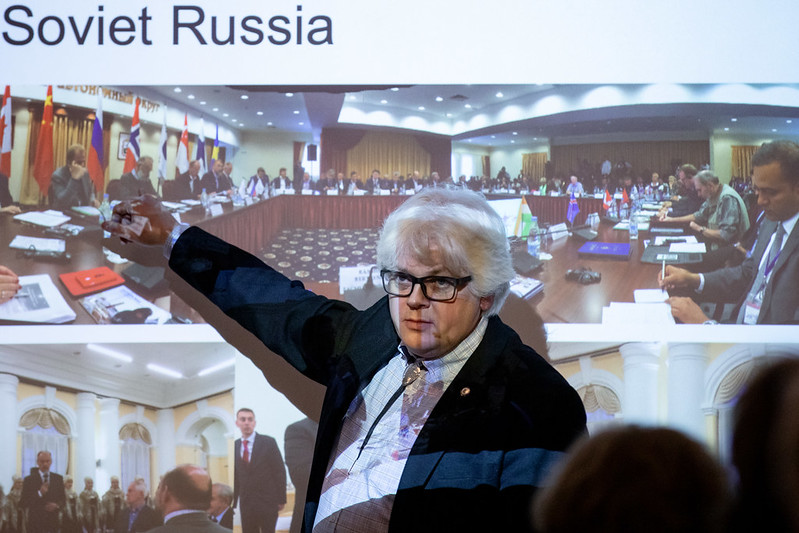Text: Sverre-Ole Drønen
Photos: Eivind Senneseth
Three Horizon 2020 projects were presented at the workshop Science Diplomacy in the Age of the SDGs during the SDG Conference Bergen. Four leading international researchers presented their visions for improving science advice to decision-makers. PROTECT’s project leader Hakan Sicakkan shared experiences from his two previous EU-projects.

In his presentation Sicakkan described the journey from his previous EU-supported projects – GLOCALMIG (2002-2004) and EUROSPHERE (2007-2013) – to PROTECT (2020-2023), and what he had learned from providing science advice to decision-makers previously and how this will inform his approach with his new project.
“In my first EU project, GLOCALMIG, we proposed three alternative policy solutions: change citizens subjective belongs to increase their well-being, change citizens’ mobility patterns, and facilitate participation in multiple public spaces,” he told the audience.
“Whereas my second EU project, EUROSPHERE, was seeking ways of making a transnational political public space and political communication possible in the EU.”
- Read the full article here.
What makes a successful science diplomat?
In his presentation From cancer genetics to science diplomacy to Horizon 2020, Lorenzo Melchor from the Spanish Foundation for Science and Technology (FECYT) and the Horizon 2020 project S4D4C took the participants on a journey from how he switched from a career in science to science diplomacy, with examples of what the S4D4C project is working on.

Melchor engaged the audience by clearly defining the role of the science diplomat, including advice on how to be effective in this role. (SEE FACTS.) Along with Switzerland, Spain has been on the forefront when it comes to science diplomacy, including the innovative tool Ambassadors for Science, which amongst others brought Melchor to Spain’s embassy in Brussels, working directly towards the EU Commission and other central bodies of European cooperation.
“Through S4D4C we have established the Madrid Declaration on Science Diplomacy. This lists the benefits and principles that must govern science diplomacy approaches for nations. Recognize not only as national, not only nation-states but other stakeholders. Science, industry, government, civil society, etc,” said the Spanish science diplomat.
Here are Melchor’s 10 tips for science diplomats:
- It’s a figure it out position!
- You are part of a team! Define a common strategy!
- Curb your enthusiasm – Science is one piece of the puzzle
- Foster a culture of science in policy making and evaluation!
- Embed science everywhere! A multidisciplinary approach
- Don’t underestimate your counterparts!
- Identify champions that support you in other departments!
- Engage with the international practitioner community!
- Read and watch the news!
- Language and trust is everything!

PROTECT’s PI, Hakan Sicakkan talked about his three Horizon2020 projects , after which the PROTECT Coroff engaged in discussion during the workshop 
Researcher Rasmus Gjedssø Bertelsen from the Arctic University of Norway and the EU-funded InSsciDE
